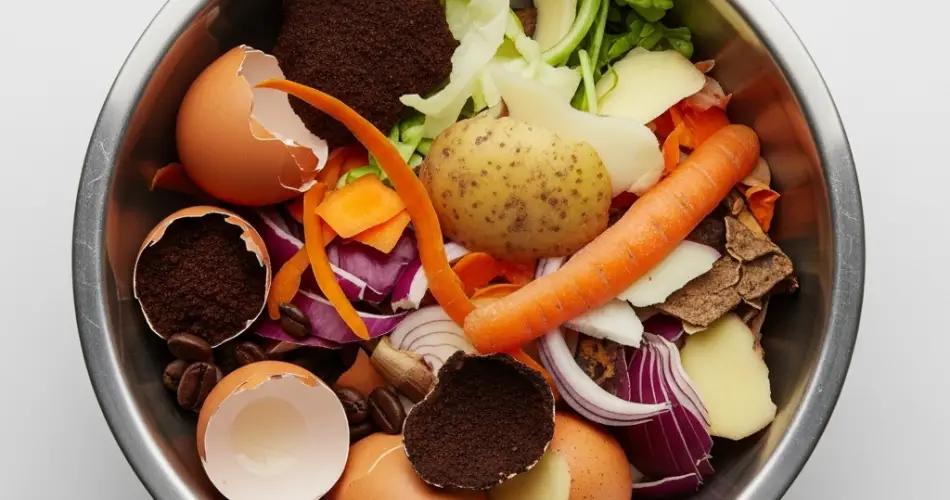In the world of gardening, many valuable resources go unnoticed—often tossed into the trash without a second thought. But what if one of the best fertilizers for your plants was already in your kitchen or compost bin?
This article reveals one of the most overlooked and powerful natural materials you might be throwing away every week. It’s easy to collect, completely free, and can do wonders for your urban garden, balcony pots, or backyard vegetable patch.
The Secret: Kitchen Scraps That Feed Your Plants
Every time you peel a vegetable, crack an egg, or make a pot of coffee, you’re generating organic waste. But not all waste is worthless—in fact, banana peels, eggshells, coffee grounds, and even onion skins are loaded with nutrients that can enrich your garden soil and help plants thrive naturally.
Instead of tossing these valuable scraps, you can transform them into powerful natural fertilizers that support plant health and growth in a sustainable way.
1. Banana Peels – A Potassium Powerhouse
Banana peels are rich in potassium and phosphorus, essential nutrients for flowering and fruiting plants. These elements:
-
Encourage stronger root development
-
Boost flower production
-
Improve overall plant vigor
How to use them:
-
Bury banana peels directly into the soil near the roots.
-
Blend them with water to create a nutrient-rich liquid fertilizer.
-
Dry and crush them into powder to sprinkle around the base of plants.
2. Eggshells – Natural Calcium for Stronger Plants
Eggshells are made up of over 90% calcium carbonate, which plants use to build strong cell walls. Calcium also helps prevent blossom end rot, a common problem in tomatoes, peppers, and squash.
How to use them:
-
Wash, dry, and crush eggshells into small pieces.
-
Mix them into your compost or directly into the planting soil.
-
Make “eggshell tea” by soaking shells in water for a few days, then use the water to nourish your plants.
3. Coffee Grounds – Nutrient Boost and Pest Repellent
Used coffee grounds are rich in nitrogen, making them an excellent addition for leafy greens and nitrogen-loving plants. They also help improve soil structure and moisture retention.
Additional benefit: Coffee grounds can deter pests like ants, slugs, and snails due to their texture and smell.
How to use them:
-
Mix into compost to balance green and brown matter.
-
Sprinkle a thin layer around plants.
-
Blend with water and use as a liquid fertilizer.
Tip: Don’t apply large amounts directly, as they may acidify the soil or cause mold. Use in moderation.
4. Onion and Garlic Skins – Natural Antifungal Boost
While the bulbs are kitchen staples, their papery skins are packed with sulfur compounds that have antifungal and antimicrobial properties. These skins are particularly helpful in warding off fungal diseases and pests.
How to use them:
-
Soak onion and garlic skins in water for 24 hours to create a “plant tea.”
-
Use this water to irrigate or spray plants weekly as a preventive treatment.
5. Vegetable Peels – Balanced Nutrition
Carrot, potato, beet, and other veggie peels contain a wide spectrum of micronutrients. While they don’t deliver a huge dose of any one nutrient, they offer a well-rounded contribution to your garden’s health.
How to use them:
-
Add to your compost pile to enrich the organic matter.
-
Blend into smoothies for plants (puree with water) and pour around the roots.
6. Water from Boiled Vegetables – Nutrient-Rich Irrigation
When you boil vegetables, valuable minerals often leach into the water. Instead of pouring this water down the drain, you can let it cool and use it to water your plants.
Important: Only use unsalted water to avoid harming plant roots.
Easy Storage Tips
To keep things simple:
-
Designate a small compost bin or airtight container in the kitchen.
-
Store peels, grounds, and shells during the day and process them all together once or twice a week.
-
Dry certain items like eggshells or banana peels if you want to store them longer without odors or mold.
Benefits for Your Urban Garden
By using these everyday kitchen scraps, you’ll enjoy multiple advantages:
-
Healthier plants with more blooms, stronger roots, and vibrant foliage
-
Less waste sent to landfills
-
Money saved on store-bought fertilizers
-
Improved soil structure and microbial activity
Final Thoughts
Urban gardening is about more than just growing plants—it’s about cultivating sustainability and finding smart, low-cost ways to support nature at home. By rethinking what we consider “trash,” we unlock new possibilities to nourish our gardens naturally.
So next time you’re peeling a banana or cracking an egg, think twice before you toss it. Your plants could be craving the very nutrients you’re throwing away.



